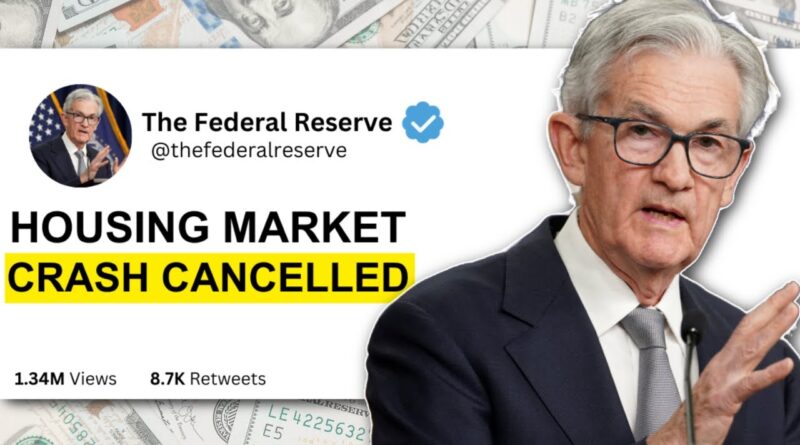What They’re Not Telling You About The 2024 Housing Market
The 2024 Housing Market: What You Have to Know
Hey there, actual property professionals and fanatics! As we speak, I need to dive into the nitty-gritty of what is actually happening within the US housing market and the financial system. I just lately watched an interesting YouTube video that shed some gentle on the present state of affairs and what we are able to count on shifting ahead into 2024. So, seize a cup of espresso, get cozy, and let’s unpack this collectively.
Inflation: The Large Dangerous Wolf
Let’s begin with the large unhealthy wolf of the housing market and the financial system—inflation. Now, I do know what you are pondering, “Inflation, schminflation, what is the huge deal?” Properly, it seems that inflation performs a large function in shaping the housing market and the general financial system.
Inflation, in easy phrases, is when there’s an excessive amount of cash floating round, chasing too few items. Consider it as everybody having a wad of money burning a gap of their pocket, however there aren’t sufficient merchandise to spend it on. This results in larger costs, particularly within the housing market.
The Fed’s Plan
So, what is the answer to taming this inflation beast? The Federal Reserve, or the Fed, has a crafty plan to fight inflation. They need to suck all that extra cash out of the financial system to scale back demand and, in flip, decrease costs. How do they do that? By elevating rates of interest, making it dearer to borrow cash and, finally, curbing spending.
Recession: The Inverse of Inflation
Now, this is the place issues get actually fascinating. The inverse of inflation is a recession. Sure, you heard that proper—recessions can really be good for the housing market. How so? Properly, a recession means there’s too little demand chasing an excessive amount of provide, resulting in decrease costs. That is exactly what the Fed is aiming for—to deliver a few recession to counteract inflation.
Housing Market Economics 101
Let’s break it down even additional. After we discuss demand within the housing market, we’re basically speaking about the price of cash, i.e., mortgages. The decrease the rates of interest, the extra inexpensive it’s to borrow cash, driving up demand. On the flip aspect, provide refers back to the variety of properties on the market. When demand is excessive and provide is low, dwelling costs skyrocket.
2021 vs. 2024: A Story of Two Markets
In 2021, we noticed demand at an all-time excessive, with rates of interest at all-time low and a scarcity of properties on the market. This led to a surge in dwelling costs and a record-breaking 6.2 million dwelling gross sales. Quick ahead to 2024, and the Fed is deliberately elevating rates of interest to dampen demand, whereas provide stays comparatively secure, holding dwelling costs in examine.
Last Ideas
So, what does all this imply for the 2024 housing market? Properly, it is clear that the Fed’s actions are geared in direction of cooling down the red-hot housing market and steering us in direction of a extra balanced and sustainable future. As actual property professionals, it is essential to remain knowledgeable about these financial dynamics and have the ability to talk these advanced ideas to our shoppers.
In conclusion, the 2024 housing market is shaping as much as be an interesting one, with the interaction of inflation, recession, demand, and provide portray a dynamic panorama for consumers and sellers alike. Keep tuned for extra updates as we navigate via this ever-evolving market.
And there you have got it, people—the within scoop on what they don’t seem to be telling you in regards to the 2024 housing market. Preserve your finger on the heart beat, and let’s experience this wave collectively!





